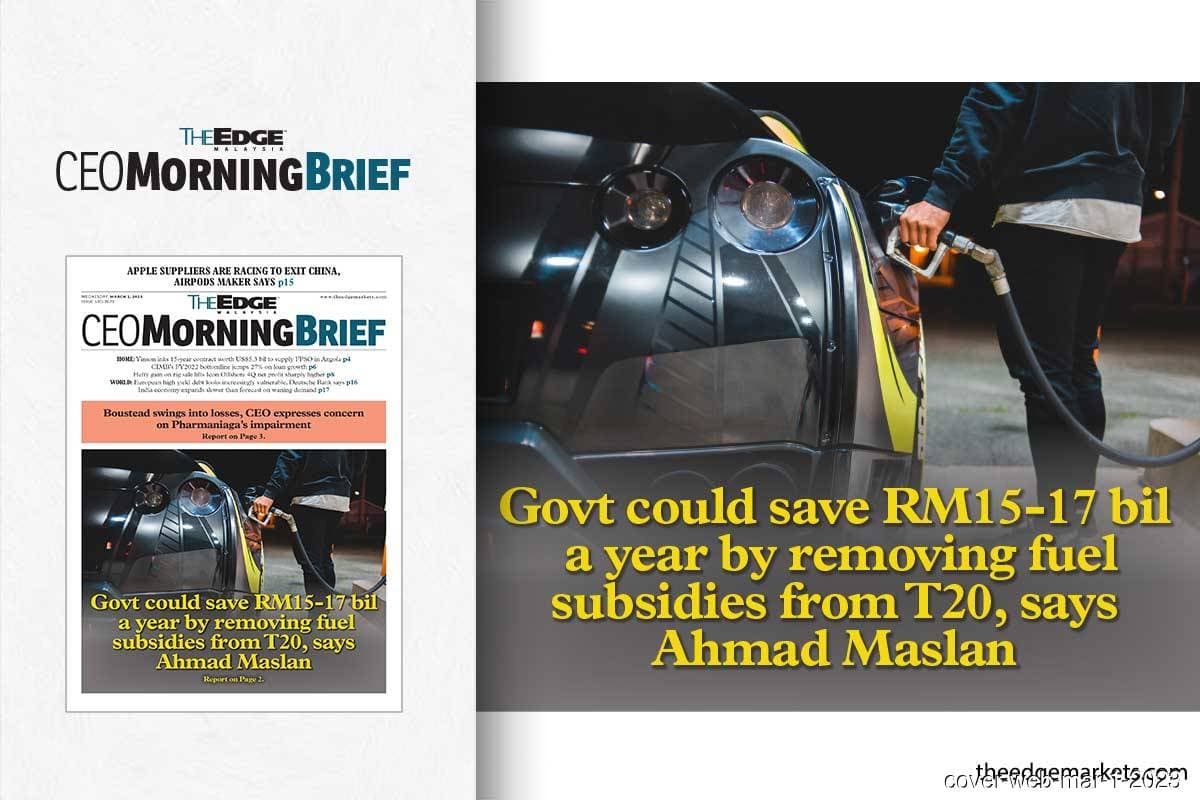
KUALA LUMPUR (Feb 28): The government is expected to save between RM15 billion and RM17 billion annually if subsidies are not enjoyed by the high-income earners (T20 group) under a targeted subsidy mechanism, according to Deputy Minister of Finance I Datuk Seri Ahmad Maslan.
Last year, the government’s subsidy for petrol, diesel and liquefied petroleum gas amounted to RM50.8 billion, of which 35% was enjoyed by the T20 group, while 41% was enjoyed by the M40 group and 24% by the B40 group, says the Pontian MP.
“If we multiply it [35% of RM50.8 billion], it would translate to RM17.8 billion of savings if the T20 did not enjoy the subsidy. We could save between RM15 billion and RM17 billion [annually]. That is the message I want to convey,” he told reporters at Parliament on Tuesday (Feb 28).
“Sometimes, these RM15-17 billion, for the T20 group, they may not even notice such a significant amount of subsidies given to them. They are capable of buying at a higher price as compared to the B40 group,” he added.
Ahmad [Umno-Pontian] said the government’s subsidy bill will go up to RM66.3 billion if subsidies for cooking oil, electricity, chicken, eggs and other consumer goods are taken into account.
“These do not include cash handouts for education, transport, agriculture, these other handouts are not included. If we include those, it will go up to RM91.4 billion,” he said.
Ahmad said the Cabinet is still studying the appropriate mechanism to implement targeted fuel subsidy, and the recent rationalisation of electricity subsidy is a first step by the government.
“The reason why we implement targeted subsidies for electricity is because 10% of the richest electricity consumers take up 56.4% of the electricity subsidy. For example [customers under] Domestic C [category] who use over 600 kWh, together with non-SME (small and medium enterprise) companies, big companies, they use 56.4% of the subsidies for electricity, they are only 10%.
“I think Malaysia is the only country that gives more subsidies to the rich than to the poor,” he said.
For more Parliament stories, click here.